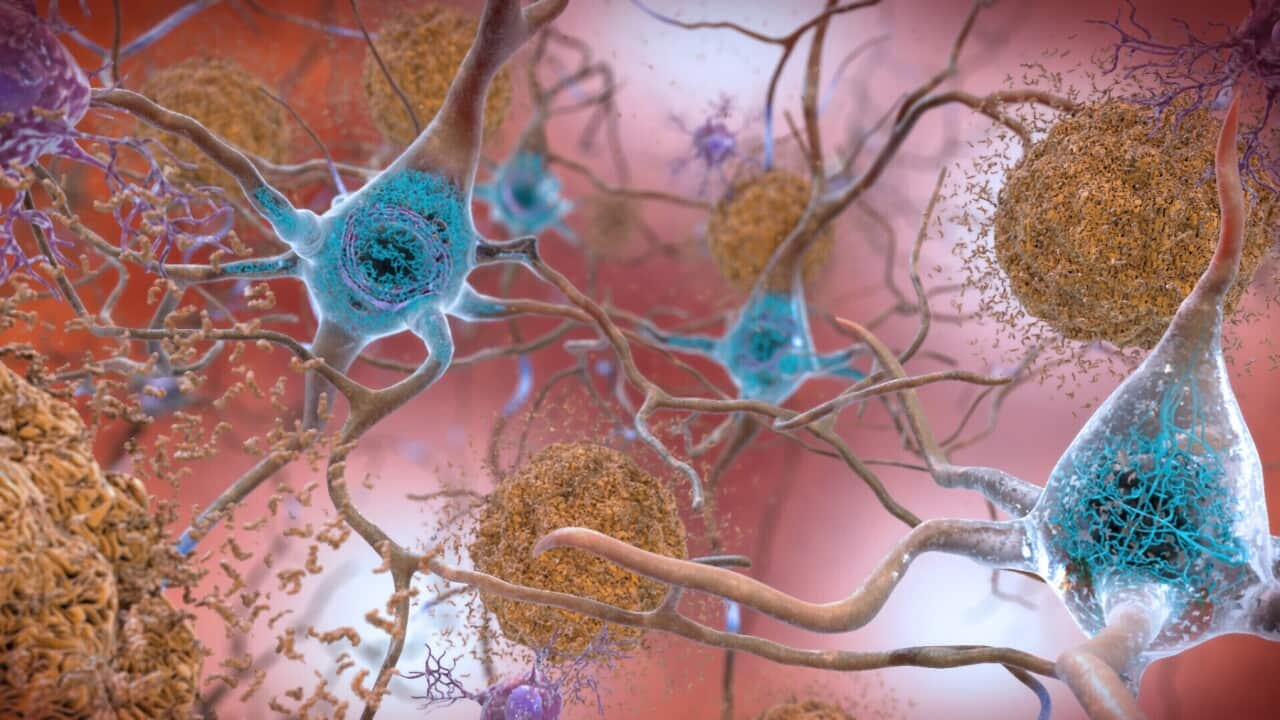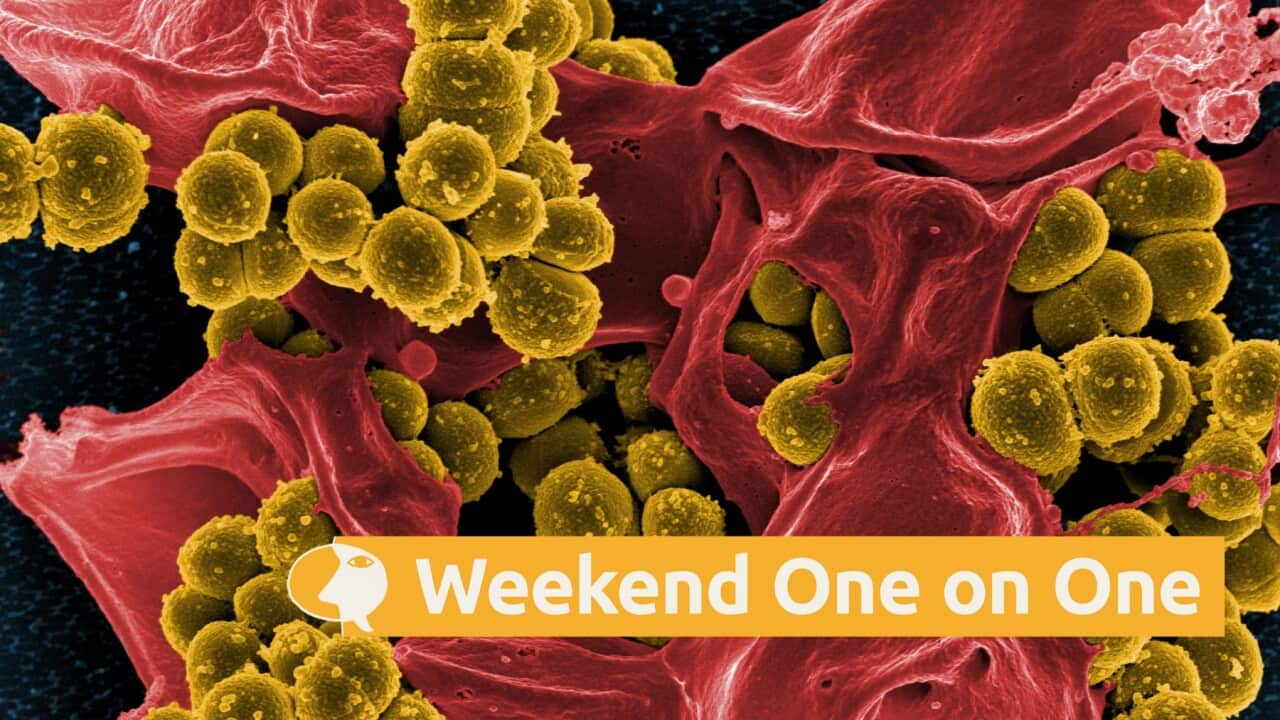Listen to Australian and world news, and follow trending topics with SBS News Podcasts.
Australia's Therapeutic Drug Administration has approved a new drug that could offer hope to those with Alzheimer's.
Alzheimer's disease is the most common form of dementia and affects around 600,000 Australians.
Researchers say the new medication represents a significant step on the path to better treatments.
"So I think we're seeing with Alzheimer's what we saw with cancer research about 50 years ago; we no longer have drugs just for the symptoms, we have drugs that now target the underlying disease process in Alzheimer's disease."
Associate Professor Michael Woodward is the Director of Aged Care Research and Memory Clinic at Austin Health.
He says the drug, Donanemab, works to remove the build-up of the protein called amyloid plaque, which is linked to memory loss and impaired thinking.
While this can slow the progression of Alzheimer's, Professor Woodward says the drug is no panacea.
"The drug is only effective, however, for people with mild Alzheimer's disease. That includes mild cognitive impairment and early dementia due to Alzheimer's disease. It's not suitable for people who are considerably affected by their Alzheimer's disease, people who need day to day care, people who can't look after their bathing, their dressing, or what have you. [With] that degree of severity, unfortunately, this drug will not be effective. It's only effective in people with the early symptoms such as significant memory loss and maybe a little loss of day to day independence."
67 year old Joel Fulton was diagnosed with Alzheimer's three years ago.
His wife Diane says the drug offers hope.
"If this drug could do what it says and give us quality time, that would be just everything. It really would."
77 year old Frank Freschi is being treated with a similar drug that targets the amyloid plaque.
He's part of a clinical trial that started three years ago.
"My view is if I can help and I can get some benefit perhaps at the end, even if it's only a year of slowing down that decline, that's worth doing."
Donanemab can have some major side effects including brain swelling and bleeding.
Experts say symptomatic side effects are fairly rare though.
Professor Christopher Rowe is the Director of the Australian Dementia Network.
"They occur in about two per cent of patients getting this drug, but that is because they're watched very carefully, with MRI scans - you have to have about five in the first six months - and if you see early signs of the development of swelling in the brain or a little bit of bleeding in the brain, you need to stop the drug for a while."
Donanemab isn't cheap either.
It's not currently listed on the Pharmaceutical Benefits Scheme, and costs around $4,700 a month, with treatment lasting 12 to 18 months.
There is a possibility that could change after a review process in July, but Professor Rowe says listing the drug could lead to a large jump in demand.
"This is going to be a bit of a shock for the health system. There's already fairly long waiting times to see a memory specialist, and we expect this to really lead to a surge in demand for those services that are already overstretched."
But for those who can get access to the drug and others like it, it could mean having a bit more quality time with the people they love.













